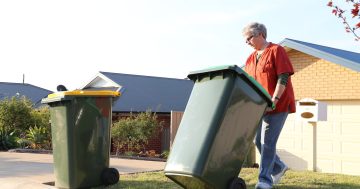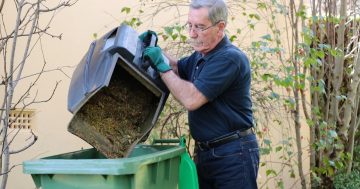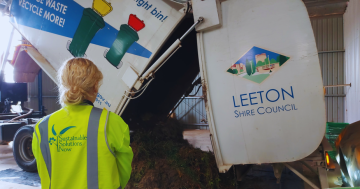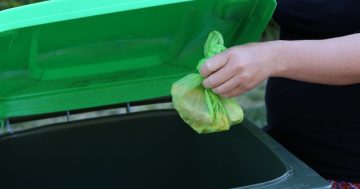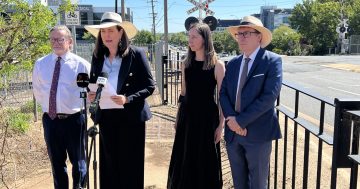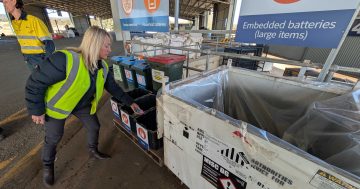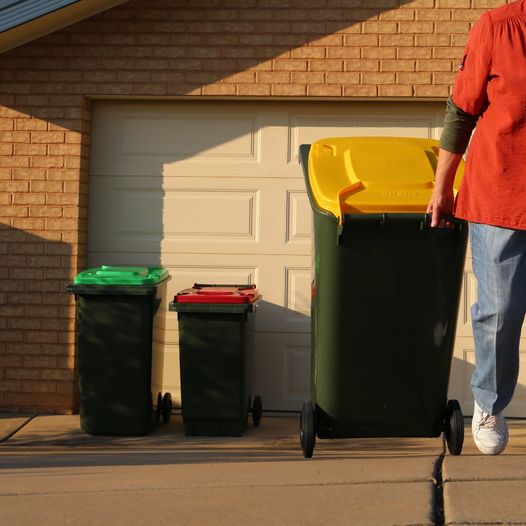
Wagga’s bin system is geared to encourage recycling. Photo: WWCC.
Inland rail has been the talk of the town for the past month, particularly for those already living on the train line.
We asked Region Riverina readers: “Do the long-term benefits of the Australian Rail Track Corporation’s (ARTC) proposed upgrades outweigh the negatives of construction and some ongoing environmental impact?”. The final numbers took a slight lean against the project with 59 per cent saying “no they don’t” and 41 per cent comfortable with the cost/benefit balance.
There are now just days to go before the 28 September deadline to respond to ARTC’s Environmental Impact Statement (EIS) for the Albury to Illabo section.
As Region highlighted here last week, claims that emergency vehicles would be impacted by the increased frequency and volume of trains appears to be unfounded, however, noise, vibration and impact on traffic remain serious considerations as the multi-billion dollar project rolls through town.
Wagga Wagga City Council has delivered its official Inland Rail A21 EIS response and it can be read here.
Submissions can be made online or in writing via Dr Joe McGirr’s office.

Double-stacked freight is the future with Inland Rail. Photo: ARTC.
This week, it’s a more mundane issue we’re examining.
Bins.
How do you cope with Wagga Wagga City Council’s award-winning environmental approach?
The FOGO bins are undoubtedly a winner in keeping piles of rubbish out of landfill by converting household waste into reusable compost.
It’s a 21st-century version of the good old chook bucket/compost bin and works beautifully.
It’s the other bins we’re curious about.
The emphasis on recycling is to be applauded and the Gregadoo Waste Management Centre is a fantastic facility.
However, Wagga’s fortnightly collection of red bins raises some questions.
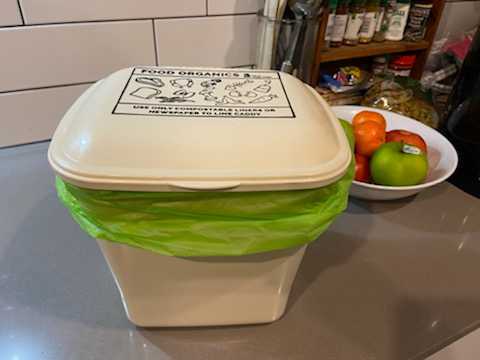
Wagga’s FOGO bin program is to be celebrated. Photo: Chris Roe.
The three-bin system is becoming more common across the state; a smaller red bin for rubbish, yellow for recycling and green for organic.
Commonly, general household rubbish is taken every week, while green waste and recycling alternate.
Here in Wagga, the red bin is not only 100 litres smaller than the others but is emptied every fortnight.
If you miss it one week – you could end up with four weeks’ worth of rubbish piling up.
Heading into summer this can be brutal – even with the bulk of the FOGO removed.
You are forced to either pay an additional $20 to council for a ‘resident at fault – unscheduled service’, take the drive to Gregadoo or drop a sneaky bag or two in your neighbour’s bin under cover of darkness to try and reduce the backlog.
Wagga City Council’s website offers tips on what to do if you run out of room, suggesting that it is a common problem:
Q. I often run out of room in my red-lid bin. What can I do about this?
A. Many items can be separated into the three-bin system. Use the A-Z guide on the council’s website to help sort your waste. If you still run out of room, you can upsize your general waste red-lid bin to a 240-litre version or get an additional bin, for a fee.
But should ratepayers be forced to pay extra for rubbish removal when the already smaller red bin is only emptied on a fortnightly basis?
Our question this week is:







